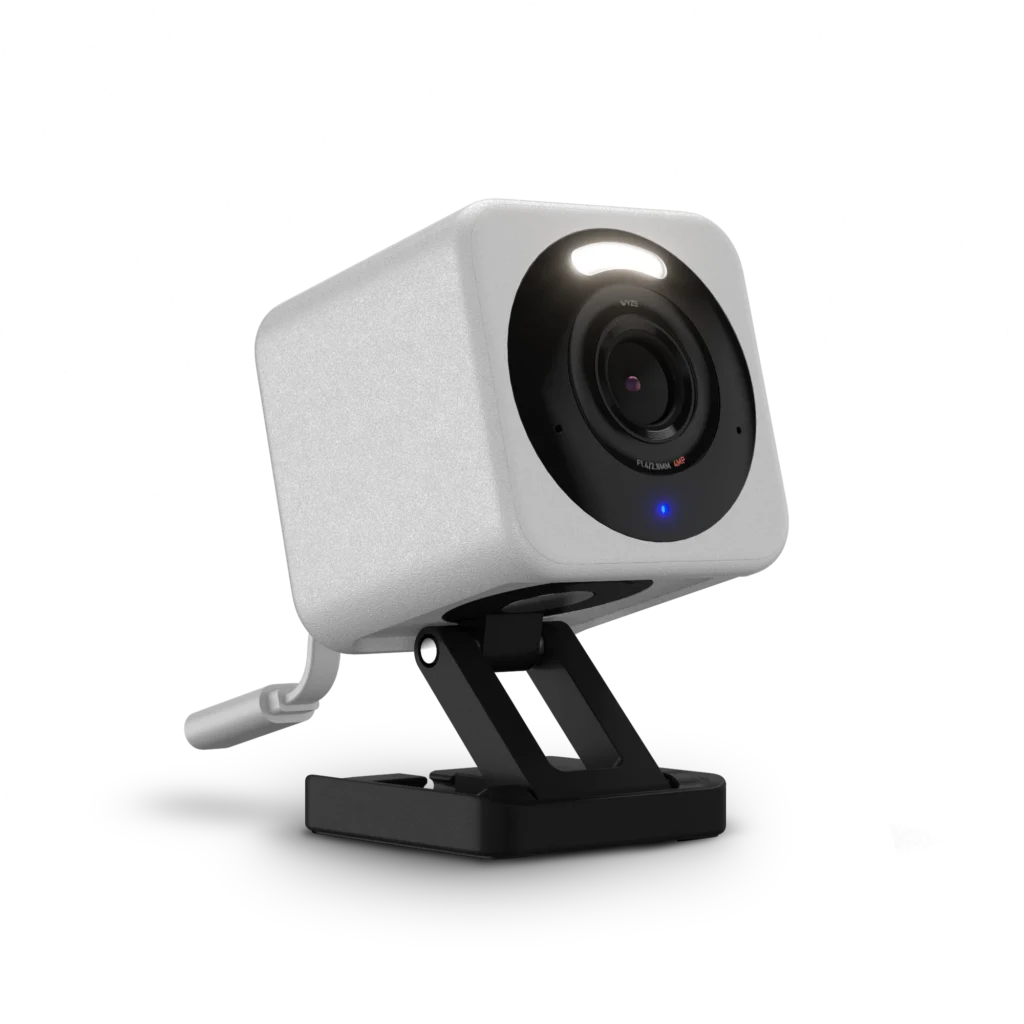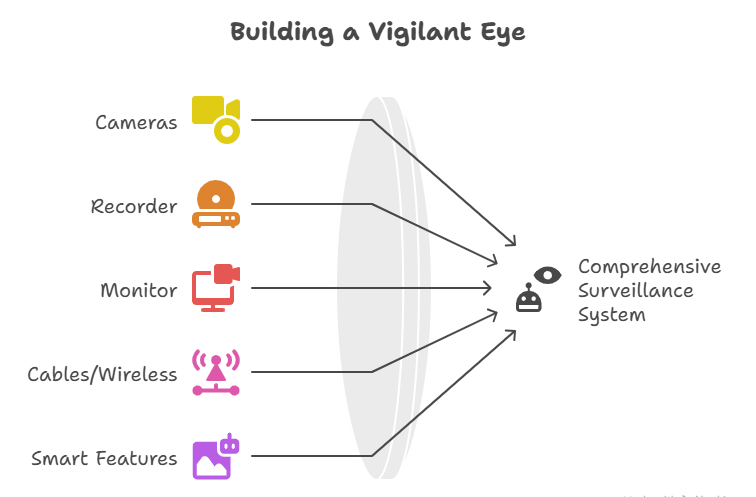Have you ever walked past a building while being watched by one of those ominous dome-shaped cameras that seem to know all your secrets? CCTV, maybe you’ve thought, what does it stand for, and why does it seem to be on every street corner? You’re not alone.
A world in which surveillance haunts the everyday human experience-from airports to schools, and even to the local grocery store-it helps to know what the acronym CCTV means. No, it is not one of those esoteric government acronyms that just the USH is studying to confuse. So, it might well be just a simple word. And yet, it holds power.
Let’s dive into what CCTV is, how it works, and why it deserves more than just a passing glance.
CCTV: What Does It Stand For?
CCTV stands for Closed-Circuit Television
Unlike regular television broadcasts offering programs for the general audience, a CCTV is a closed circuit where the tape or footage is sent to an assigned set of monitors or devices, and only duly authorized persons may view it. Imagine a VIP screening of actual footage! Unfortunately, the actors do not know that they are in it!
Purpose? Security, surveillance, monitoring, and sometimes, just monitoring for who is continually stealing snacks from the office kitchen.
A Bit of Backstory: Born in War, Raised in Peace
Believe it or not, CCTV didn’t start as a security system for retail stores or apartments. It was originally developed in 1942 by German engineers to monitor V2 rocket launches. The Americans later used it during atomic bomb testing.
Fast forward a few decades, and CCTV became less about missiles and more about missing lunchboxes. Today, it’s everywhere—from crime prevention to customer behaviour analysis.
How Does CCTV Work? (Without Getting Too Technical)
The most basic CCTV system comes with just a few parts: cameras-analog, digital, or IP; a recorder, like, for instance, DVR or NVR, that saves the footage; a monitor to view the footage; and cables or wireless connections to link the cameras with the recorder and monitor. Some very smart cameras include the ability to send out motion alerts or facial recognition, all too akin to a Guard who never forgets, nor sleeps.

Let Me Tell You a Quick Story…
A couple of years ago, I helped a friend set up a CCTV system at his new café in a busy part of Chandigarh. He was sceptical— “Isn’t this overkill for a coffee shop?” he asked.
Three weeks later, a minor break-in attempt happened one night. Thankfully, the intruder changed his mind the moment he saw the camera. The next day, my friend greeted me with a proud smirk and a replay of the footage.
Let’s just say he now recommends CCTV with more enthusiasm than he does cappuccino.
CCTV in the Real World: Where It’s Being Used
CCTV systems are used everywhere, including:
- Homes and Apartments – for safety, delivery monitoring, and unwanted visitors
- Public Roads and Intersections – to monitor traffic and catch rule-breakers
- Retail Stores and Malls – not just to catch shoplifters, but to analyze how shoppers move
- Hospitals – for monitoring patients and ensuring compliance
- Schools and Campuses – to deter bullying and unauthorized access
- Industrial Zones – for safety and accident prevention
If a place needs eyes—even when no one’s around—CCTV is the solution.
Different Flavors of CCTV Systems
1. Analog CCTV
- Uses coaxial cables
- Budget-friendly, but limited in resolution
2. Digital CCTV
- Clearer image quality
- Easier to store and retrieve footage
3. IP/Network CCTV
- Internet-based, with remote access
- Ideal for businesses and smart homes
Some systems even combine local storage with cloud access, offering the best of both worlds.
Smart CCTV: Not Just Watching, But Thinking
Modern CCTV systems are smarter than ever. With AI and video analytics, they can:
- Detect suspicious activity
- Count people in a crowd
- Recognize license plates
- Alert you when someone enters restricted areas
It’s a bit like having Sherlock Holmes as your personal security consultant—minus the hat.
But Wait—What About Privacy?
That’s a valid concern. With great surveillance comes great responsibility.
Data protection laws need to be adhered to by government entities and must also be followed by the private companies, while ethical considerations of camera placement are to be made with reasonable signage for evident CCTV usage. A balance must be maintained; security must never be considered above the rights of the people.
CCTV What Does It Stand For (and Why Should You Care)?
Now that we’ve answered the original question—CCTV, what does it stand for? —Let’s recap why it’s so relevant today:
- It stands for Closed-Circuit Television.
- It provides security, peace of mind, and actionable data.
- It’s more than just a “camera on a wall”—it’s part of a smarter, safer way to live and work.
Whether securing your home, business, or that coffee shop (yes, really), modern-day needs have made sure that CCTV systems have evolved with or without internet and with a great deal of intelligence lately.
Need the Right CCTV Setup in Chandigarh? We’re Here to Help
At CCTV Hub Tech, we offer advanced, professionally installed CCTV camera systems tailored to your needs—residential, commercial, or industrial.
Visit our trusted CCTV camera shop in Chandigarh for expert advice and installation that’s built to protect today and tomorrow.

